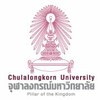News
Guest Lecture: Chandni Basu - The Dialectics of Childhood and Deviance
We are very pleased to announce that Mrs. Chandni Basu will give a guest lecture on June 18th: "The Dialectics of Childhood and Deviance: young people´s sexual interaction and marriage within the Indian context - a critique of Global Childhoods". The lecture starts at 02:00 PM in room 1139, KG I (Albert-Ludwigs-Universität Freiburg).
Guest Lecture: Prof. Walter Mignolo - "Latin" America in the Past and Current World (Dis) Order: Pueblos Originarios, European Diaspora and African Forced Migrations
We are very pleased to announce that Prof. Walter Mignolo will give a guest lecture on May 28th: "Latin' America in the Past and Current World (Dis) Order: Pueblos Originarios, European Diaspora and African Forced Migrations". The lecture starts at 08:15 PM in HS 1098, KG I (Albert-Ludwigs-Universität Freiburg). This event is part of the lecture series held in cooperation with the Arnold-Bergsträsser-Institut on "Latin America between Crises and New Opportunities: Social Movements, State and Democracy".
Guest Lecture on "Cross-Cultural Marriages" by Dr. Renuka Singh (JNU, India)
We are very happ to annouce that Dr. Renuka Singh (JNU, India) will hold a guest lecture on "Cross-Cultural Marriages" on 30th of May 2018 in Freiburg. The lecture will be held from 10.00 AM to 11.30 AM in HS 3411, KGIII (Albert-Ludwigs-Universität).
Lecture Series: "Latin America's New Moment of Contested Politics: Social Movements, the State, and Democracy"
The Arnold-Bergstraesser Institute (ABI) and Global Studies Programme present a Politicum Lecture Series on Latin America's New Moment of Contested Politics: Social Movements, the State, and Democracy

SOCARE Congress: “Rethinking Europe from the Carib bean: Entanglements and Legacies” 12-15 April, 2018 Albert-Ludwigs-University of Freiburg, Germany
From 12-15 April 2018 Albert-Ludwigs-University of Freiburg has the pleasure to host the 16th SOCARE Congress on “Rethinking Europe from the Carib bean: Entanglements and Legacies”.
"Jettisoning old knowledge for new ". GSP at Uni Freibug's online magazine
The effects of globalization had long been making themselves felt when the Social Sciences’ Master’s Program was initiated at the University of Freiburg fifteen years ago. Its approach – sending students out into the world to explore societal change first-hand – was, however, genuinely new. After spending time at universities in South Africa, Argentina, Thailand or India, the students today above all bring back new perspectives to Freiburg. Now a series is to introduce seven further projects in international cooperation.
Prof. Manuela Boatcă and Prof. Anca Parvulescu awarded ACLS 2018 Collaborative Research Fellowship
ACLS is pleased to announce the 2018 Collaborative Research Fellows. The program, which is funded by The Andrew W. Mellon Foundation, supports small teams of scholars as they research and coauthor a major scholarly product. The eight teams selected by peer reviewers this year cross disciplinary, methodological, and geographic boundaries, and represent a range of institutions and academic ranks.
Call for Papers „Rethinking Europe from the Caribbean: Entanglements and Legacies“ 12-15 April, 2018 Albert-Ludwigs-University of Freiburg, Germany
The multiple ties that bind the Caribbean and Europe are the main focus of the conference marking 30 years since the Society for Caribbean Research (Socare) was founded. The Caribbean was the first region to be colonized by European powers in the 16th century and the last one to be (incompletely) decolonized in the 20th century. It received more than one-third of all Africans trafficked in the European trade in enslaved people between the 16th and 19th centuries as well as significant numbers of indentured and contracted European laborers during much of the same period, followed by indentureship and contract labor from Asia. It experienced the genocide of thousands of indigenous groups at the hands of European colonists as well as some of the most intense economic exploitation among Europe’s colonies. After World War II, European states compensated for their domestic labor shortages by recruiting large numbers of workers from their Caribbean colonies. This also prompted changes in the citizenship policies that European colonial powers directed at these migrants.
Colloquium politicum: Spotlight Southeast Asia
A guest lecture series on current developments in Indonesia and the South China Sea







